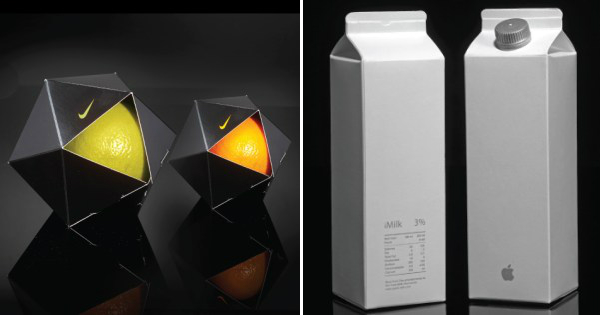If you have ever wondered what luxury brands — Tiffany, Dolce and Gabbana, Ferrari — would look like on grocery shelves, then wonder no more.
Peddy Margui infers from the fashion brands’ existing design language and re-imagines them as they would exist in the food aisles. The art of this Israel-based designer gives us the answer to the oft-asked question, “Could Louis Vuitton make salami look fierce?”
The results are a tug-of-war between the bizarre, and the attractive enough to buy.
Bvlgari butter
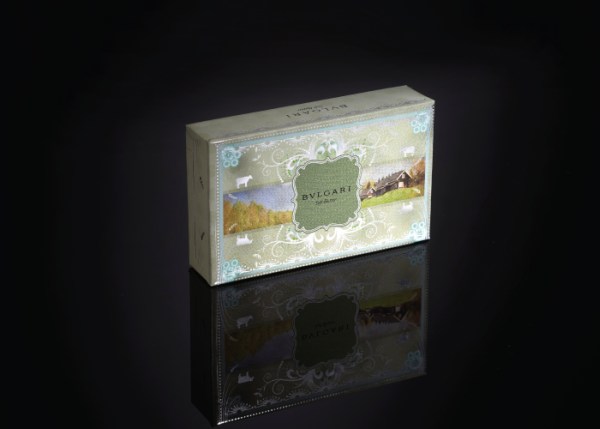
Dolce & Gabbana biscuits
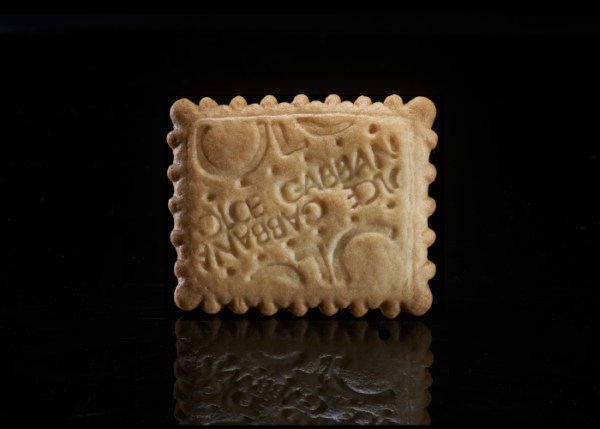
Chanel infant formula
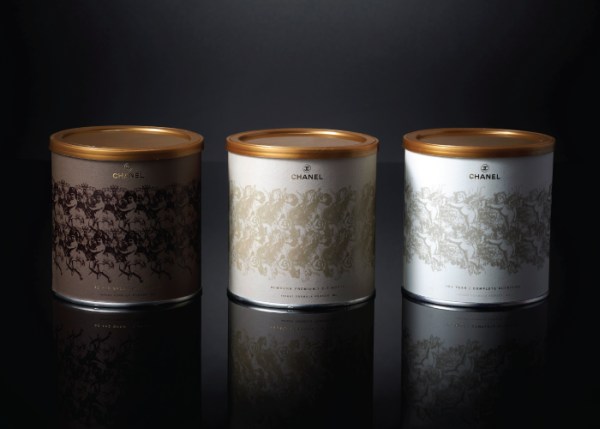
I wouldn’t trust that Chanel infant formula, but it just looks so good!
Tiffany & Co yogurt
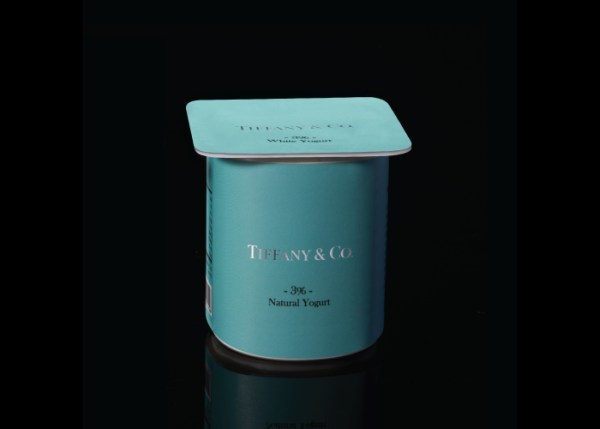
Mergui’s imagination makes product packaging that is so true to the visual concept of the brands. That Tiffany yogurt carton would fit right into a Tiffany & Co. jewelry store window and none would be the wiser.
Nike oranges
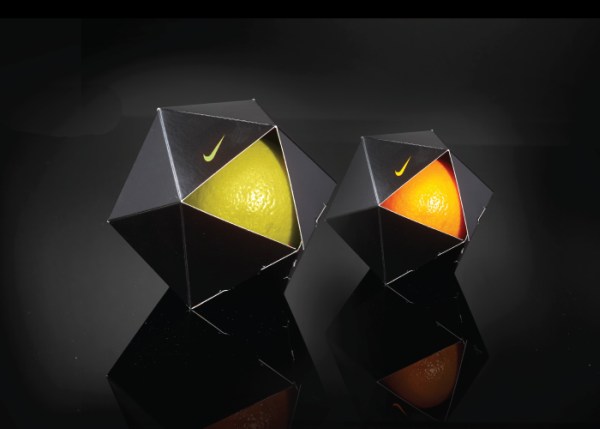
In fact, these look so good that it makes one wonder, why doesn’t Nike include oranges in their product line?
Ferrari pasta
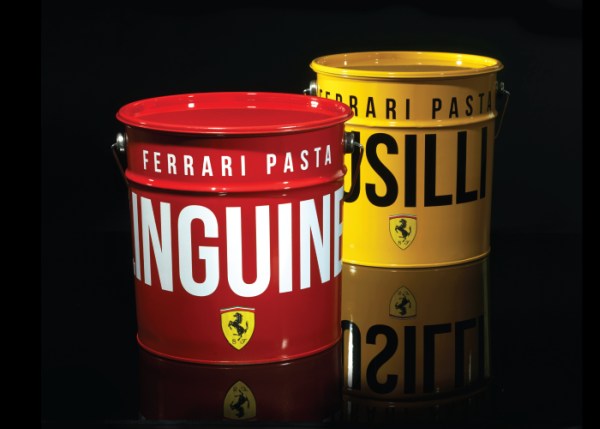
That, Mergui says, is the inspiration. He says, “As a designer myself, I am always asking myself what the ethical boundary is when it comes to a design’s ability to influence consumption.” If they wanted to, Ferrari could sell a can of pasta for $20, or Apple could retail its iMilk for $10 per gallon. And the crazy thing is, people will actually buy them.
Versace eggs

Apple iMilk
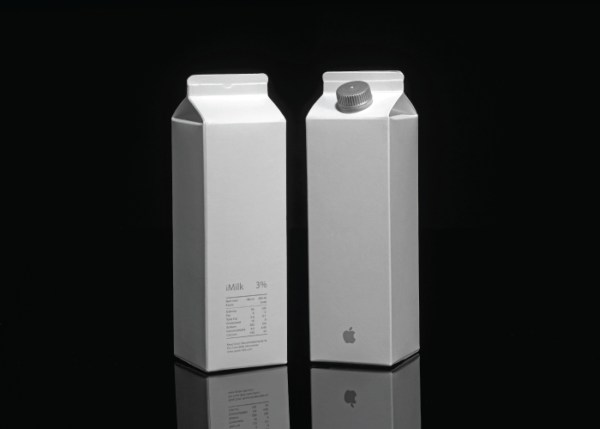
Prada flour
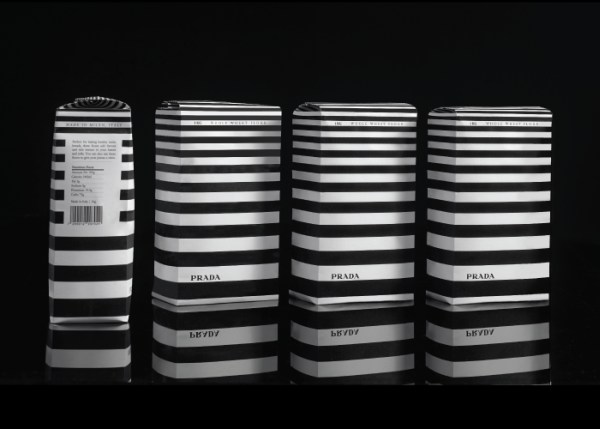
Burberry noodles
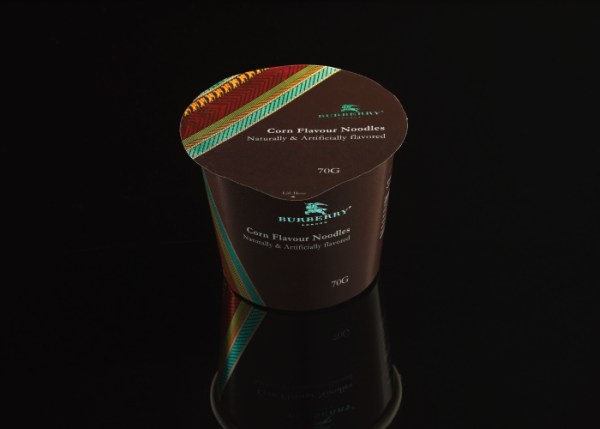
Vuitton salami
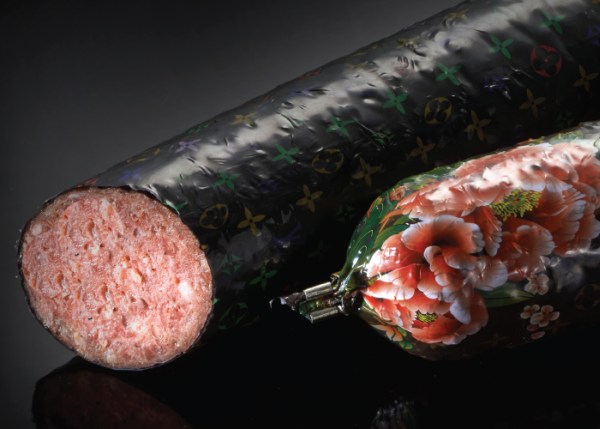
Mergui tastefully reveals the sad truth that we are mere consumer pawns in the capitalist game of chess.
And that apparently, Louis Vuitton can make salami look sexy.

